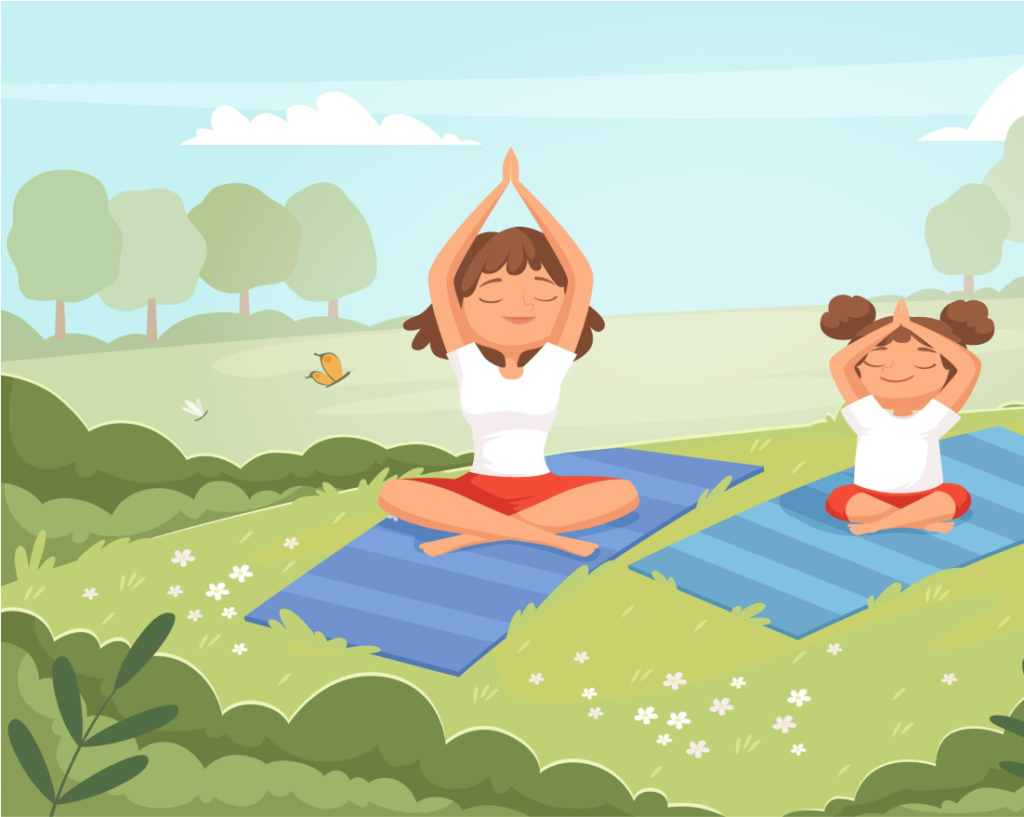Life is uncertain and hectic. You have to be a master multitasker every day. You have a job both out in the world and/or in your home. Being a mom is a never-ending job, caring for a child when they are sick, managing their daily routine, and being a referee to multiple siblings’ fights a day.
Maintaining your home, cleaning, and cooking meals. Worrying about your family’s financial needs.
Then all the unexpected things happen in life, a loved one becomes ill or dies or you have health problems of your own. All of these things cause stress. Long-term or chronic stress can have negative effects on your health. Finding natural ways to help reduce feeling stressed is important to your health and feelings of well-being.
Effects of chronic stress on your health
- Heart disease, high blood pressure, heart attack, stroke
- Stomach problems such as GERD, irritable bowel, gastritis, colitis
- Obesity
- Skin problems such as acne, eczema, and psoriasis
- Menstrual, sexual, fertility problems
- Anxiety
- depression
Are you Stressed?
If you are experiencing these symptoms you are stressed. This chronic stress is affecting your health and wellbeing.
- Irritability
- Anger
- Feeling overwhelmed
- Trouble sleeping or sleeping too much
- Difficulty concentrating
- Frequent headaches
- Body aches and pains
- Upset stomach, bowel irregularity
- Unmotivated or low energy
Stress self-care tips
There are natural ways to help manage your stress. These self-care tips will help to increase your feeling of well-being and reduce stress. Be proactive and reduce the effect stress has on your health.
- Spend time with friends or family. For most women talking is the number one way we work through problems that are causing stress.
- Exercise regularly, 30 minutes 3 to 5 times per week. Yes, sex increases your heart rate so it counts as exercise. Exercise releases feel-good endorphins in your brain. It helps distract you from what is causing stress.
- Get the right amount of sleep. Adults need 7 to 9 hours of sleep per day. Allow yourself enough time for sleep. Have a pre-bedtime routine that helps you unwind so you can sleep better.
- Eat well. Give your body the right fuel. Foods to avoid: processed food, sugary foods, caffeine, and alcohol. Foods to eat: fresh fruits and vegetables, whole grains, lean meats (chicken, fish, seafood), foods high in omega 3 (tuna, salmon, avocados, canola oil), dairy.
- Write it down. Journaling your thoughts, experiences, and feelings helps you to sort them out. You can look for patterns in your day/life where you can make changes to reduce stress. Write down a couple of things you are grateful for. Gratitude is uplifting.
- Listen to relaxing music. Music can reduce your stress level. Studies have shown that listening to relaxing music can even reduce blood pressure and heart rate.
- Aromas, certain ones have a relaxing effect. When breathing in, your nose sends relaxing messages to your brain. Some of the essential oils that are known to help reduce stress are lavender, lemongrass, lemon, frankincense, and cedarwood. Buy your favorite scented candle.
- Breathing, in a purposeful way, can help to relieve stress. Find a comfortable place to do this. Close your eyes, breathe through your nose to the count of 6, then breathe out through your mouth to the count of 6. Do this breathing for 5 to 10 minutes. You can also try using a breathing exerciser to help you breathe in a controlled calming manner.

